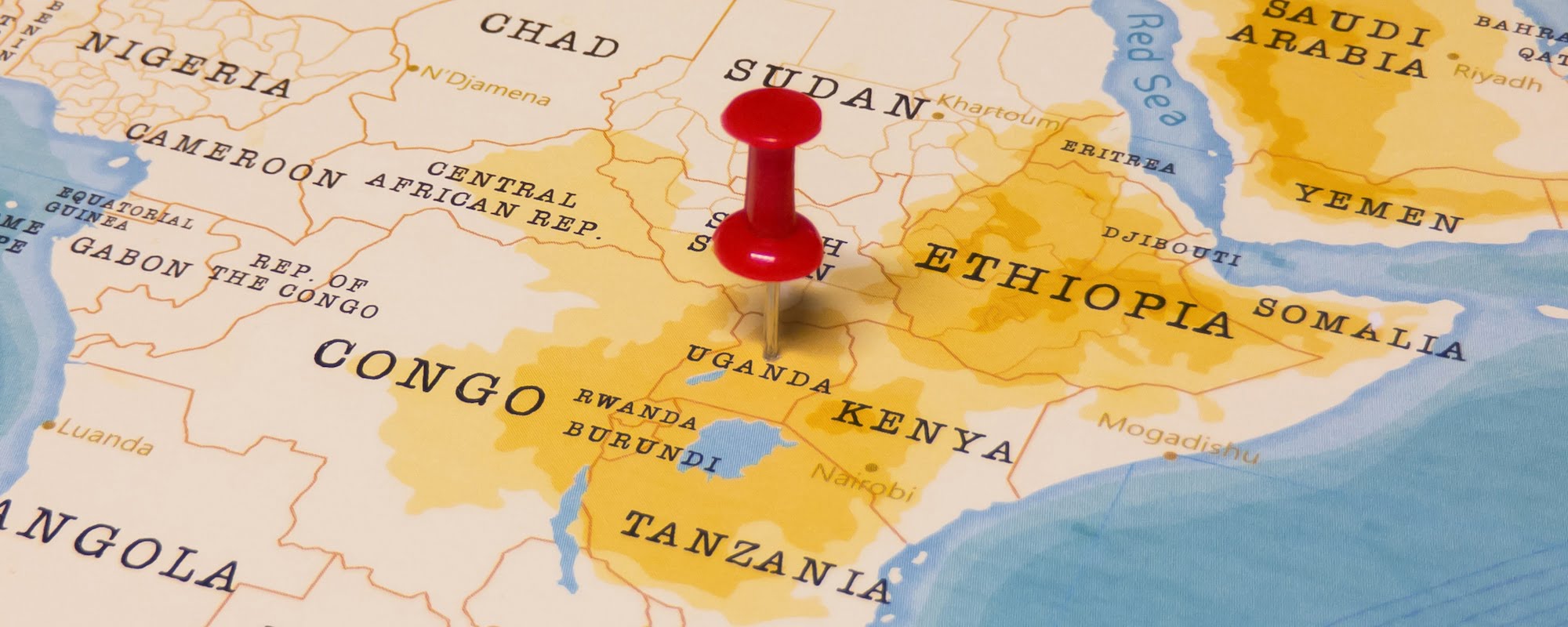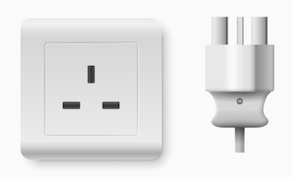
Uganda: Before You Go
- Check if you require to enter the country at the Ugandan Ministry of Internal Affairs: https://immigration.go.ug/services/visa-exempt-countries
- If possible, apply for an e-visa online before you depart at the following link: https://immigration.go.ug/services/tourist-visa#:~:text=This%20visa%20is%20granted%20to,online%20through%20the%20Immigration%20portal
- Uganda’s currency is shilling (UGX).
- If possible, always use banks or official bureaus de change to exchange currency. Local traders may not give you the best possible exchange rate. Banks and bureaux de change can be found at international airports and major shopping malls in major cities like Entebbe and Kampala.
- Although it is possible to pay for items in US dollars, change will be given in shillings.
- Diners Club and Amex are not widely accepted. Please bring an alternative card.
- Some establishments may levy a surcharge on credit-card payments but this is not usual.
- Please inform your bank that you will be travelling to Uganda so that your card is not blocked when you try to use it.
- ATMs / cash points are available in airports, malls and banks in Entebbe and Kampala.
- Almost all lodges and camps have Internet connections but speeds and strengths can vary, especially in more remote areas. Locations for connectivity (for example, your room only or the common areas only) can also differ.
- SATSA’s eSIM product and data can be purchased online before you travel. Once you land, you can activate the eSIM option on your mobile phone for instant connectivity rather than purchasing a SIM card from a retailer (which may come with administrative or legal requirements). Click for more information: SATSA eSIM
- Gratuities are never mandatory but are always gratefully received. The average employed person supports up to seven other people so tips that supplement their incomes are very welcome.
- Guides can be tipped in cash at the end of your time with them. We suggest USD20 per day per person as a guideline.
- Lodge staff are generally tipped via a box in the reception area at the end of your time there or given to the manager in front of other staff by saying that the gratuity is for everyone. We suggest USD20 per person per day. It is not usual to leave money for housekeeping in your room outside city hotels.
- For restaurants, add 10% of the total bill as a gratuity – more if you feel the service warrants it.
- Your consultant will break down all costs that are covered by your itinerary and those that aren’t. Generally, extras include souvenirs, premium wines and spirits, activities not included, meals not included and personal expenses.
- Eating out in Uganda is generally affordable but please note that wines, imported beers and international spirits can be more expensive.
- Please ensure you have comprehensive medical and travel insurance to cover all eventualities, including evacuation and CFAR (cancel for any reason) coverage (if possible).
- If you are travelling through yellow fever areas, you may require proof of vaccination.
- Please note that gorillas and chimpanzees are very vulnerable to human diseases that could be fatal. If your guide feels you are too ill to trek because you pose a threat to the primates, you will not be allowed to join. Ensure you are in good health especially around ailments such as colds and flu.
- Because of their vulnerability, you may be required to wear a mask when you are near the gorillas or chimpanzees. This is mandatory if required with no exceptions.
- There is a risk of malaria – please consult your doctor or travel clinic.
- All the global safety standards apply: watch your belongings, be aware of your surroundings and keep to well-lit, main areas.
- On safari, always obey any instructions from guides, rangers or lodge staff.
- Do not try to attract wild animals’ attention under any circumstances, leave the vehicle without permission, or walk and swim in areas that are out of bounds.
The main plug type in Uganda is G (three flat pins in a triangular layout).

- Some lodges and camps have international plug adapters but it is best to bring your own.
- The voltage is 240V and the frequency is 50Hz so be sure to check that your appliances are compliant – you may need to bring a voltage converter.
- Many lodges have solar power and the staff will inform you when this is available and what appliances it can run. Charging phones and camera batteries is straightforward but running hairdryers and CPAP machines can be problematic so please chat to your consultant.
- While tents have lighting, it can sometimes be dim. A headlamp is a great addition and helpful when packing luggage or checking documentation.
- It is not necessary to buy specialist safari gear unless you are going on a lengthy walking safari. Your luggage limit is 15kg / 33lb in a soft bag.
- Choose the colours of nature: greys, greens, browns and khakis. Avoid bright colours like red and yellow; avoid blacks and blues as they attract tsetse fly; avoid whites as they provide too much contrast against the bush.
- Choose natural fibres.
- Long-sleeved shirts and trousers protect you from the sun, insects and thorns.
- Closed shoes, sunglasses, sunscreen and a cap or hat are highly recommended.
- Early mornings and late evenings can be cold so bring fingerless gloves, a scarf, beanie and jacket.
- Rural Ugandans are modest: avoid revealing large expanses between your knees and shoulders as these are considered private areas. Cover up after leaving the pool and walking to your room.
- As far as possible, bring eco-friendly toiletries.
- Bring extras of necessities like contact lenses, medications and reading glasses.
- At lodges that are solar powered, hairdryers can generally not be used.
- Aim to be comfortable and dress in layers.
- Avoid hard shell suitcases, strong perfumes and expensive jewellery.
- Bring extra underwear as often these items are not accepted by the lodge laundry service (see note below). When you have two nights at a lodge or camp, turn in your laundry on your first day so it has the full second day to be laundered and dry.
- Ugandans in the hospitality industry are generally helpful, friendly and cheerful people.
- It is normal to greet and enquire about the person’s wellbeing before launching into a question or complaint. Politeness and a sense of humour are prized.
- Washing powder will be provided in your room: this is for cleaning your own underwear. Cultural norms mean that you will rinse out your own intimate items. Generally, all other items will be laundered, often for free.
- Be mindful when passing through villages. Ask permission before photographing people, buildings or homes, and respect children or the elderly. Ask yourself whether you would like a stranger photographing your children without permission, outside your home.
- It is illegal to photograph police stations, border points, airports, military buildings, government buildings or soldiers and other officials.
- Please do not bring candy, sweets or balloons to give to children. Dental care is limited and plastic is harmful to the environment. Contributions via the lodge or Pack For A Purpose are always appreciated!
Uganda’s southern region has two rainy seasons: from about March to May, and from around September to December. The north has one rainy season, from about March to October.
Because it is equatorial, temperatures don’t fluctuate too radically throughout the year.
| Minimum | Maximum | |
| Year-round temperatures | 16°C / 61°F | 27°C / 81°F |







